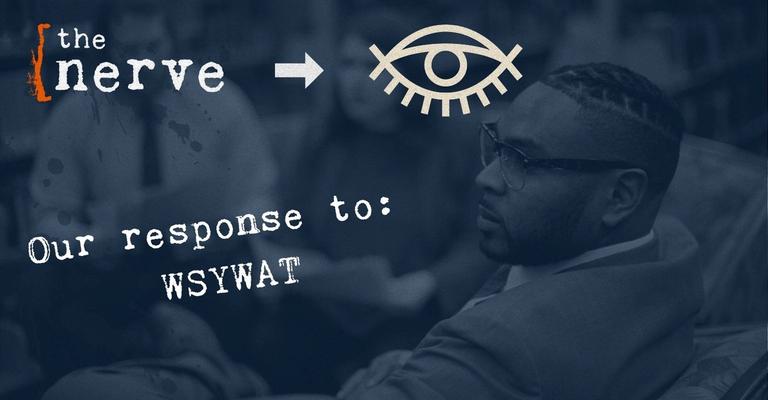Our WSY WAT Response Plan
Jul 11, 2021 • by Jenna Valyn
Building a Better Dayton Theatre Community Through Diversity and Inclusion
In June of last year, a group of 300+ BIPOC theatremakers drafted and signed a testimonial letter titled Dear White American Theater , which was “collectively crafted by theatremakers from across the country, exposing the indignities and racism that BIPOC, and in particular Black theatremakers, face on a day-to-day basis in the theater industry.” This movement and call for accountability, called We See You, White American Theatre (WSY WAT) issued a detailed list of demands with their aim towards creating a “more equitable and safe space for BIPOC communities in our nation and inside of the American Theater.”
Here at The Nerve, we are striving to grow as an anti-racist organization that can represent Dayton in all of its beautiful complexity. On June 7th, 2020, we stated on our Facebook page that we “want to be a home for artists of all races, ethnicities, and gender identities to come together and tell raw, real, and relevant stories.” We also detailed a general plan of action of how we intended to make changes to serve our goals. Shortly after, we became aware of WSY WAT’s demands and began planning in earnest. We committed to doing as much research as we could and met with local community organizers to see which ways we could best serve the artists of this city. In our research, we came across Broken Nose Theatre’s response to WSY WAT and were heavily inspired by their list of action steps and changes. In drafting our own list, we used much of their language and catered it to our own singular experience in running a theatre company.
We have written that list of action steps below. The changes detailed below will be implemented across the entirety of our company. It should be noted that we view this as a living, breathing document and will continue to update/change it as we grow and evolve.
Commitments we’ve already implemented or will be in the near future
- Share our production budgets on the Nerve website show-by-show to provide full transparency. Economic Accessibility = Economic Transparency.
- Provide post-mortem feedback opportunities for our artists to express their thoughts, suggestions, and criticisms as we continue to produce.
- Intentionally practice color conscious casting and building relationships with BIPOC artists.
- Capitalize the “B” in Black, “I” in Indigenous, “L” in Latinx, “A” in Asian, “M” & “E” in Middle Eastern, as well as the names of other BIPOC communities in all company related copy. We will update the terms used as they evolve.
- Read and reaffirm both the Anti-Racist Policy and Statement of Inclusion Practices at the beginning of every rehearsal process.
- Read and reaffirm the Anti-Racist Policy at the top of Board & Company meetings.
- Openly forbid the use of racial slurs in rehearsals and performances unless specified in the script of the play/musical currently being rehearsed.
- Should the show in-question require the use of racially offensive language or action, a private session should be held (much like intimacy design) with the actor(s) directly impacted by said language or action.
- Select stories that do not focus solely on trauma, especially culturally specific trauma; embrace dramatic material that reflects unique perspectives held by folks who may be outside of our company.
- Incorporate Indigenous Land acknowledgement in show programs and displays.
- Practice and promote transparent fundraising practices.
- We will stand with BIPOC artists who call out racist practices.
Commitments we will be building to (future aspirations)
- Provide Mental Health & Emotional First Aid Training for Nerve Staff, ensemble, and board at least once per calendar year
- Develop intervention and disruption protocols for incidents involving 3rd parties (ie audience, venue staff, other company artists, etc.)
- Publish internal policy documents on the company website.
- Facilitating with directors, prior to a rehearsal process, how a production will handle physical manifestations of BIPOC trauma that may come through in the rehearsal and production.
- Ensure already contracted artists are compensated when asked to take on additional duties (ie fight captain, marketing consultant, etc.)
- Work to expand our press contacts list to include more BIPOC journalists/critics/promoters/etc.
- Conduct personalized outreach to community groups and organizations that are relevant to audiences we want to build relationships with.
- Creating relationships with and recruiting board members from the BIPOC community.
